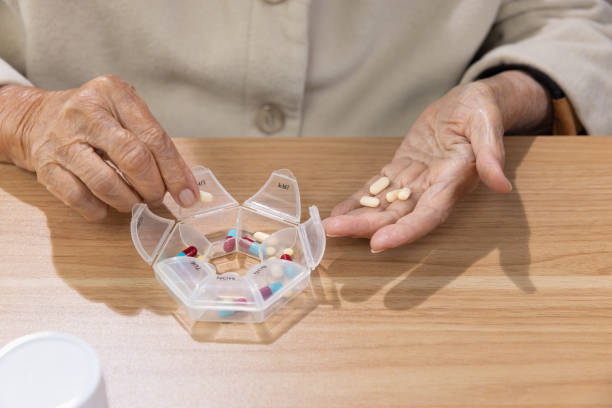In senior care, medication management is a critical yet often complex responsibility. Many seniors rely on multiple prescriptions to manage chronic conditions, recover from illnesses, or maintain their quality of life. However, the intricate schedules, varying dosages, and potential side effects can be overwhelming, increasing the risk of missed doses or medication errors. This is where home health aides step in as vital allies, offering professional assistance and ensuring seniors stay on track with their prescribed treatments.
Contents
Why Medication Management Is Crucial for Seniors
Medication plays a pivotal role in improving and sustaining the health of older adults. Many seniors take medications for conditions such as diabetes, hypertension, arthritis, or heart disease. Proper adherence to these prescriptions helps prevent complications, improve quality of life, and reduce the risk of hospitalizations.
However, as people age, they often face cognitive decline, memory challenges, or vision problems, all of which can hinder their ability to manage medications independently. Additionally, juggling multiple medications, each with its own set of instructions and potential interactions, can lead to errors such as overdoses or skipped doses.
The consequences of improper medication management can be severe. According to studies, medication-related problems are a leading cause of hospital admissions among seniors. Therefore, having a trusted professional like a home health aide oversee this care aspect can make a significant difference.
The Role of Home Health Aides in Medication Management

Home health aides are trained caregivers who provide essential support to seniors, enabling them to maintain their independence while ensuring their safety and comfort. One of their key responsibilities is medication management, which encompasses a range of tasks designed to support adherence and minimize risks.
1. Organizing Medications
Home health aides often start by helping seniors organize their medications. They might use tools such as pill organizers, which separate medications by day and time, to ensure the correct dosages are easily accessible. This organization eliminates confusion, especially for seniors taking multiple prescriptions.
2. Setting Reminders
Home health aides provide reminders to take medications at the right time for seniors who struggle with memory lapses. This consistent monitoring reduces the likelihood of missed doses, through verbal prompts, alarms, or digital reminders.
3. Monitoring for Side Effects and Interactions
Home health aides are trained to observe seniors for any adverse reactions or side effects from medications. They can recognize symptoms that require medical attention, ensuring timely intervention. Additionally, they help identify potential interactions between prescriptions or over-the-counter medications, collaborating with healthcare providers as needed.
4. Assisting with Refills and Appointments
Running out of medication or missing a doctor’s appointment for prescription renewals can disrupt a senior’s care routine. Home health aides often assist with managing refills, scheduling medical appointments, and communicating with pharmacies to maintain continuity in treatment.
5. Educating Seniors and Families
Education is a crucial component of a home health aide’s role. They help seniors and their families understand the purpose of each medication, how it should be taken, and why adherence is important. By empowering seniors with this knowledge, aides foster a sense of control and confidence in managing their health.
Addressing Challenges in Medication Management
While home health aides provide invaluable support, they may encounter challenges in managing medications effectively. Some seniors may resist taking medications due to fear of side effects, confusion, or a misunderstanding of their purpose.
Home health aides employ patience and communication skills in such cases to build trust and address concerns. They may involve family members or healthcare providers to reinforce the importance of adherence and find solutions tailored to the senior’s preferences and needs.
Benefits of Home Health Aides in Medication Management
The involvement of home health aides in medication management offers numerous benefits for seniors and their families:
- Improved Health Outcomes: Aides help seniors better manage their chronic conditions and overall health by ensuring timely and accurate medication intake.
- Reduced Hospitalizations: Proper medication adherence minimizes the risk of complications that could lead to emergency room visits or hospital stays.
- Peace of Mind for Families: Knowing a professional caregiver oversees medication schedules allows family members to focus on their responsibilities without constant worry.
- Enhanced Independence: With the support of home health aides, seniors can continue living independently at home and maintaining their routines and lifestyles.
Choosing the Right Home Health Aide
Selecting a qualified home health aide is essential to ensure effective medication management. Families should look for aides with:
- Proper Training: Aides should be certified or trained in medication management and first aid.
- Experience with Seniors: Familiarity with common senior health conditions and medications enhances the quality of care.
- Strong Communication Skills: A good aide should be able to communicate effectively with seniors, families, and healthcare providers.
- Compassion and Patience: These qualities are vital in addressing seniors’ unique challenges.
Wrapping Up
Medication management is a cornerstone of senior care, and home health aides play a crucial role in ensuring safety, adherence, and improved health outcomes. Their expertise, dedication, and compassionate approach allow seniors to navigate the complexities of their medication regimens confidently.
For families, entrusting this responsibility to a trained professional not only enhances their loved one’s quality of life but also provides peace of mind, knowing that their health and well-being are in capable hands. In a world where seniors deserve dignity, comfort, and excellent care, home health aides stand as invaluable partners in their journey toward better health.

